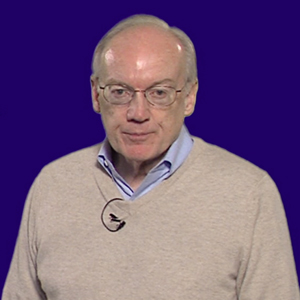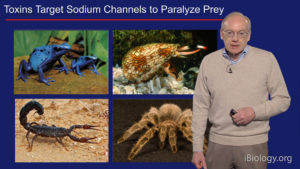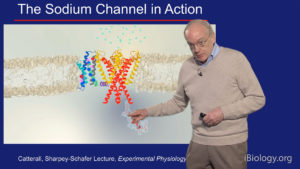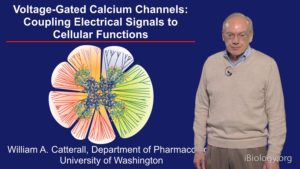Bill Catterall is Professor and Chair of the Department of Pharmacology at the University of Washington where he has been a faculty member since 1977. Catterall received his BA in Chemistry from Brown University and his PhD in Physiological Chemistry from Johns Hopkins University. He was a post-doctoral fellow with Dr. Marshall Nirenberg and a staff scientist at the NIH for a few years before moving to the University of Washington.
Catterall and his colleagues discovered the voltage-gated sodium and calcium channels responsible for generating the electrical impulses necessary for most physiological functions. His lab continues to study the structure and function of these channels, their physiological regulation, and their interaction with medically important drugs. Catterall is also interested in understanding how impaired channel function may lead to human disease.
Catterall has been recognized with numerous awards and honors for his contributions to the fields of electrophysiology, pharmacology, neuroscience, and cell biology. These include receiving The Bristol-Myers Squibb Award for Distinguished Research in neuroscience in 2003, The Gairdner International Award of Canada in 2010, election to the U.S. National Academy of Sciences in 1989, the Institute of Medicine and the American Academy of Arts and Sciences in 2000, and as a Foreign Member of the Royal Society of London in 2008.







